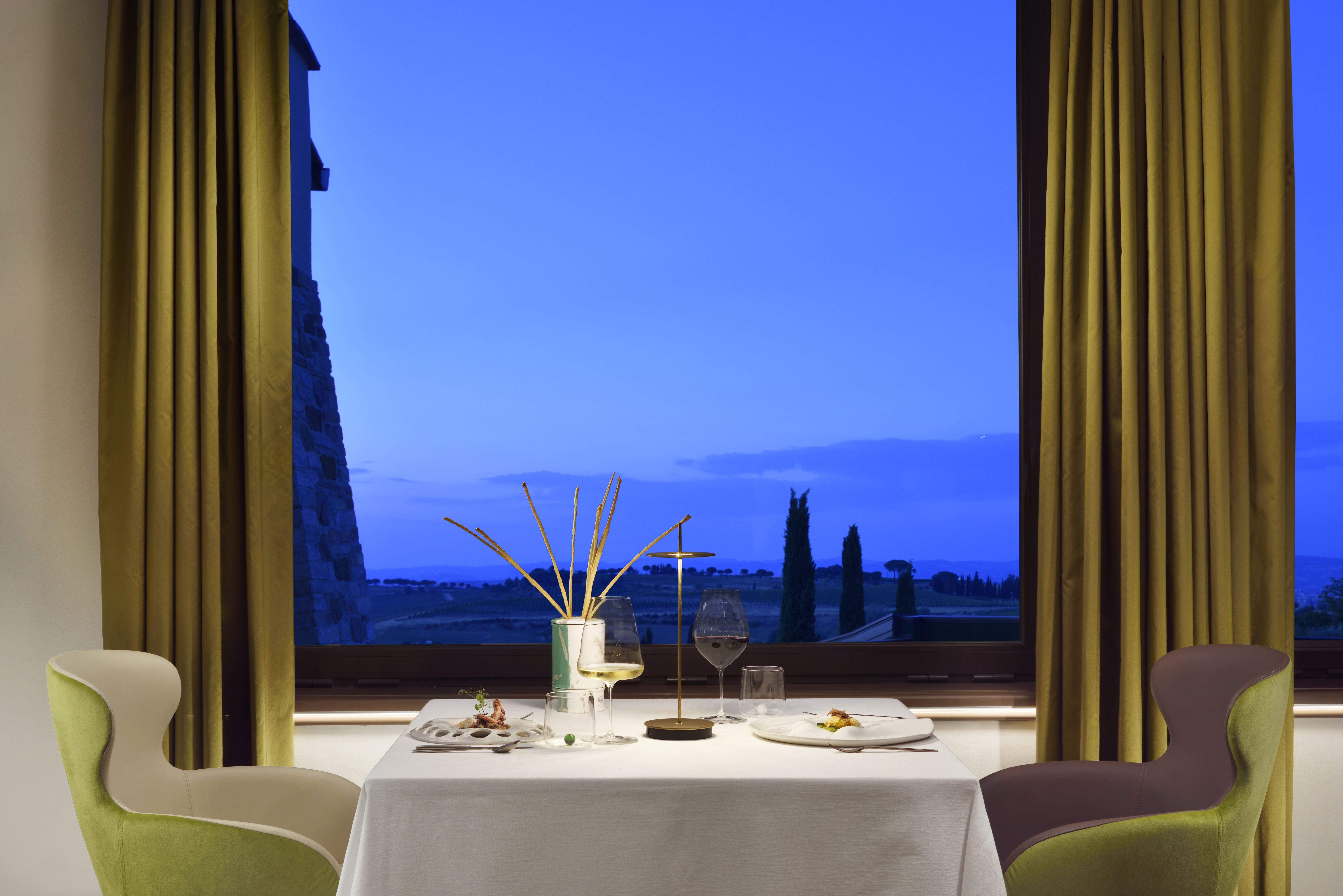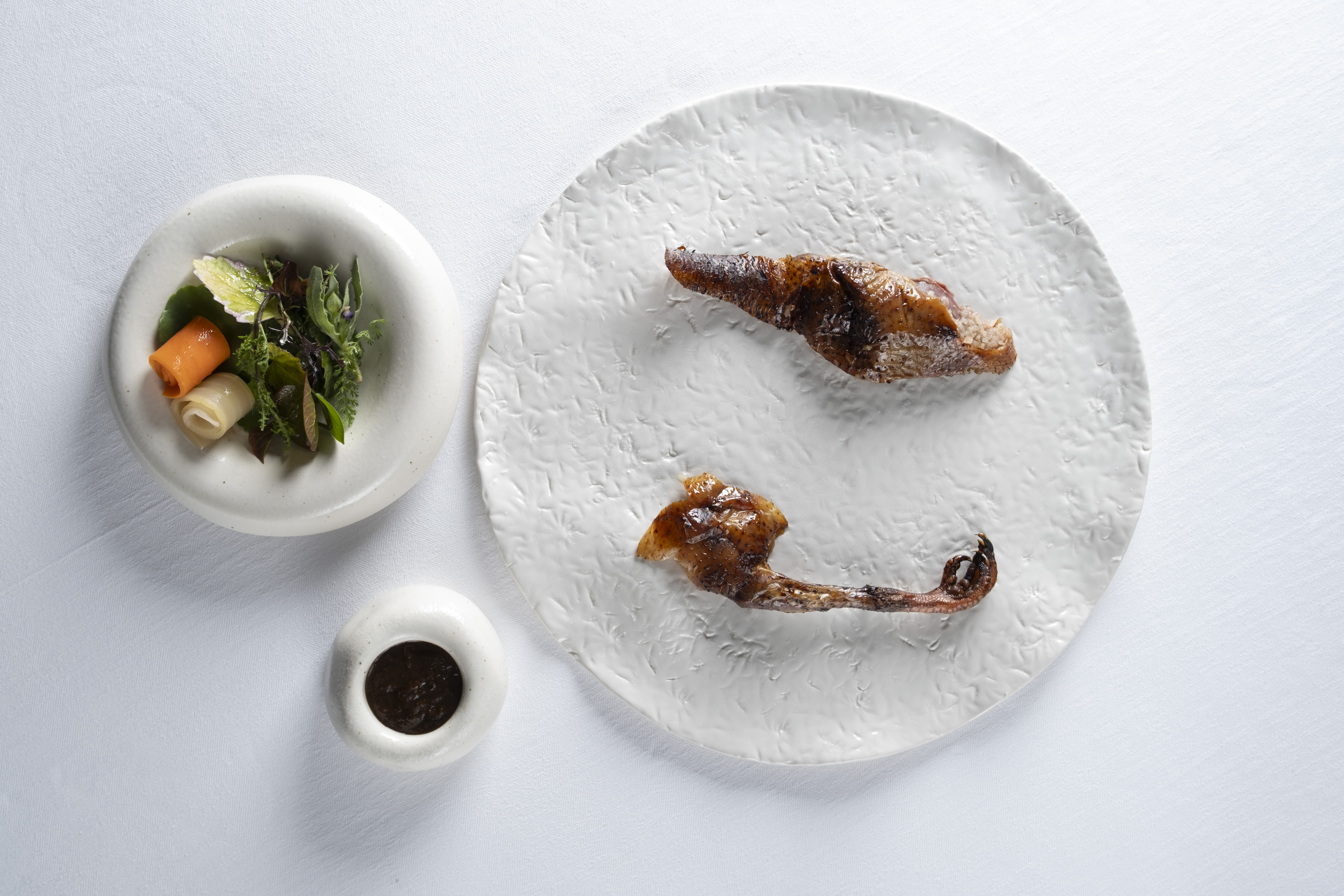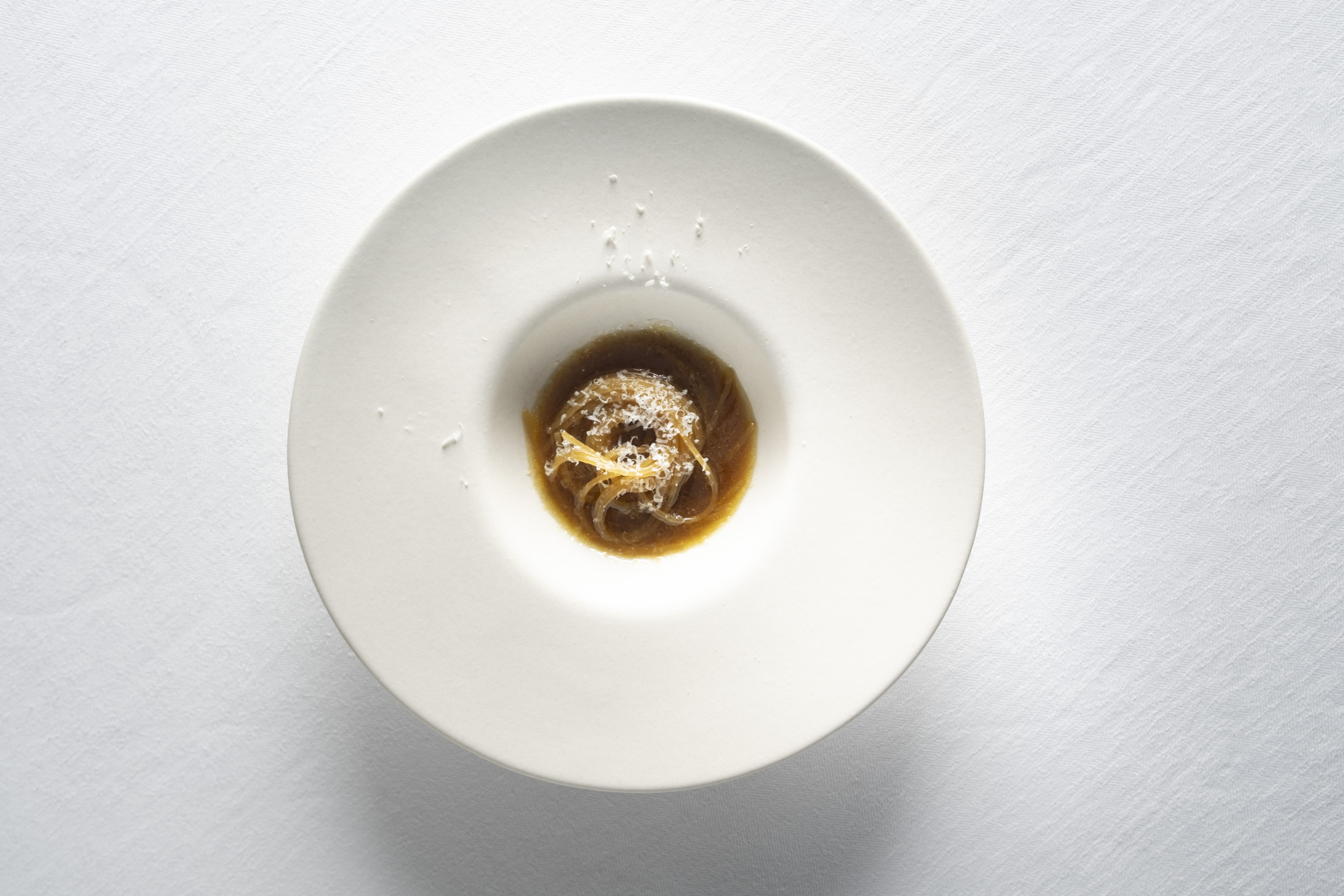Let’s talk about the wonderful context of Borgobrufa, a huge resort on the outskirts of Perugia. Chef Andrea Impero is young, proactive, dynamic, and has a solid philosophy behind his work, expressed both in words and in the kitchen. Confident in his idea, he challenges common perceptions by offering dishes like “bread and salami” among the starters, almost defying the notion that Michelin-starred restaurants serve “strange things.” But let’s proceed in order.

Here it is, Elementi, a name that conceals two meanings within a semantic universe. But before we delve into discussing the cuisine and the restaurant (which made it into the latest edition of the Michelin Guide, among the “accomplice” establishments of Umbria’s recent surge in fine dining), let’s contextualize everything. We’re at the gates of Brufa, a small village in the province of Perugia reachable via a ten-minute detour from the E45.
Borgobrufa is a 5-star resort boasting the largest spa in the region. Born as a farmhouse about twenty years ago, it has grown into a huge accommodation facility nestled in the Umbrian hills, overlooking Assisi and Perugia. It’s such a massive construction that guests are handed a map of the complex at reception, which, in addition to the wellness area, includes 49 rooms and two restaurants: Elementi is the Michelin-starred.

And it’s precisely Elementi that has recently unveiled its two new menus: Vision and Inspiration. Menus on which Chef Andrea Impero (originally from Ciociaria, now adopted by Umbria) has worked over the last 2-3 months with his brigade (elements of the kitchen, and minds at work) to best showcase the recent star awarded by the guide of excellence, embarking on a new “illuminated” journey under equally new spotlights. I had heard about the free and fluid proposal advocated by the chef, one who doesn’t adhere to the traditional concept of starters, first courses, and main courses in the most classic and familiar senses of the terms. Indeed, it’s true: the path laid out by Impero (who considers the territory not limited to Umbria or Perugia but involves producers from Central Italy, ranging from Tuscany to Lazio) resembles the shell game, where just when you think you’ve spotted the ace, you’re tricked, with Andrea revealing it slyly by lifting the card next to it. The tasting journey is a bit like that, capable of surprising and at the same time delighting.

Because perhaps dishes like carp in porchetta or a kind of wild boar stew accompanied by roveja (an ancient Umbrian legume) might be expected as “main courses,” but they actually arrive practically immediately. And then there’s what would commonly be considered an entrée, a puff pastry pizza served between courses. “Intermezzo,” it’s called, like popcorn during a movie interval. A moistened hand towel, and off we go again.

The unprecedented journey continues: just when you think you’ve reached the threshold of dessert, and after eating a space pigeon (which, for the occasion, is dissected and portioned directly in the dining room by the chef), a dish that isn’t really a main course is served: spaghetti with a sprinkle of pecorino cheese and plenty of Cannara onions, to the point that sweet, that dish (accompanied by a pleasant vermouth and soda), truly becomes. And after the pasta? Here comes the cheese trolley, accompanied by a glass of beer, followed by beaten egg like zabaglione (with coffee biscuits) before the actual dessert, a crescionda (a typical sweet from the Spoleto area) in three variations: according to a medieval recipe (revisited and adapted), contemporary, and “of the future,” without the use of allergens and with coconut flour.
To finish it all off, an infusion based on a mix of black teas and Indian spices is served. A beverage not suitable for everyone, especially those who might have their sleep “disturbed” by an excessive dose of theine after dinner.
Alessandro Creta

